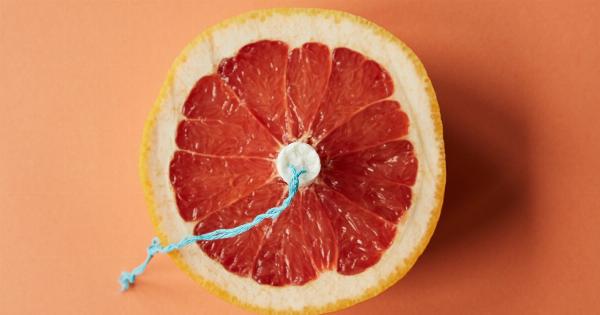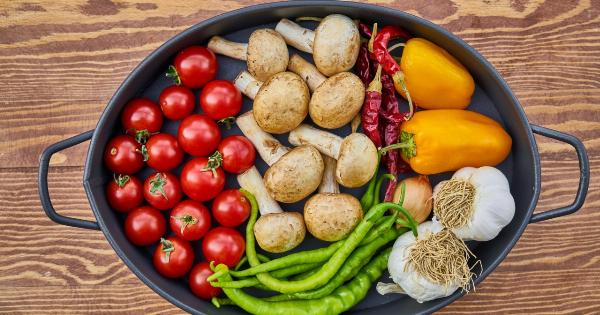PMS, or premenstrual syndrome, is a condition that affects many women in the days leading up to their menstrual cycle. It is characterized by a variety of physical and emotional symptoms, including bloating, cramps, mood swings, and fatigue.
While the exact cause of PMS is unknown, certain foods have been found to exacerbate these symptoms and make them worse. In this article, we will explore nine foods that you should avoid or limit to help alleviate your PMS symptoms.
1. Salt
Excessive sodium intake can lead to water retention and bloating, which are common symptoms of PMS. Foods high in salt, such as processed snacks, fast food, and canned soups, should be avoided during this time.
Instead, opt for low-sodium alternatives and flavor your meals with herbs and spices.
2. Sugar
Consuming foods high in sugar, such as sweets, desserts, and sugary drinks, can disrupt your hormonal balance and worsen PMS symptoms.
These foods cause a spike in blood sugar levels, followed by a sharp crash, which can contribute to mood swings, irritability, and fatigue. Replace sugary treats with fresh fruits or natural sweeteners like honey or maple syrup.
3. Caffeine
Caffeinated beverages like coffee, tea, and energy drinks can exacerbate PMS symptoms by increasing anxiety, irritability, and breast tenderness. Caffeine also acts as a diuretic, leading to dehydration and worsening bloating.
Consider switching to decaffeinated alternatives or herbal teas during this time.
4. Alcohol
Alcohol can have a negative impact on hormonal balance and liver function, making PMS symptoms more severe. It can also disrupt sleep patterns and worsen mood swings.
Limit your alcohol intake or avoid it altogether during the days leading up to your period.
5. Dairy Products
Dairy products contain arachidonic acid, which can trigger inflammation and increase discomfort during PMS. Additionally, some women may experience digestive issues or bloating due to lactose intolerance.
Consider opting for dairy alternatives like almond milk or coconut milk instead.
6. Fatty Foods
Foods high in saturated and trans fats, such as fried foods, processed meats, and pastries, can worsen inflammation and increase estrogen levels. These can contribute to breast tenderness, mood swings, and bloating.
Choose lean sources of protein, like fish or tofu, and incorporate healthy fats from sources like avocados and nuts.
7. Refined Carbohydrates
Refined carbohydrates like white bread, pasta, and pastries can cause a rapid rise in blood sugar levels, leading to energy crashes and irritability. They also lack essential nutrients and fiber.
Choose whole grains, such as quinoa or brown rice, to stabilize your blood sugar levels and provide long-lasting energy.
8. Processed Foods
Processed foods are often high in unhealthy fats, sodium, and artificial additives that can exacerbate PMS symptoms. These foods can also disrupt gut health and contribute to bloating and digestive issues.
Opt for whole, unprocessed foods like fruits, vegetables, and lean proteins.
9. High-Sodium Condiments
Condiments such as soy sauce, ketchup, and salad dressings can be major sources of hidden sodium. Excessive sodium intake can lead to fluid retention and worsen bloating.
Look for low-sodium or sodium-free alternatives, or make your own condiments at home with fresh ingredients.
Conclusion
While it may be challenging to completely avoid all of the mentioned foods, making conscious efforts to limit their intake can help alleviate your PMS symptoms.
Additionally, incorporating a balanced diet consisting of whole foods, lean proteins, and fiber-rich grains can support hormonal balance and reduce discomfort. Remember to stay hydrated, get regular exercise, and manage your stress levels to further enhance your overall well-being during this time.































